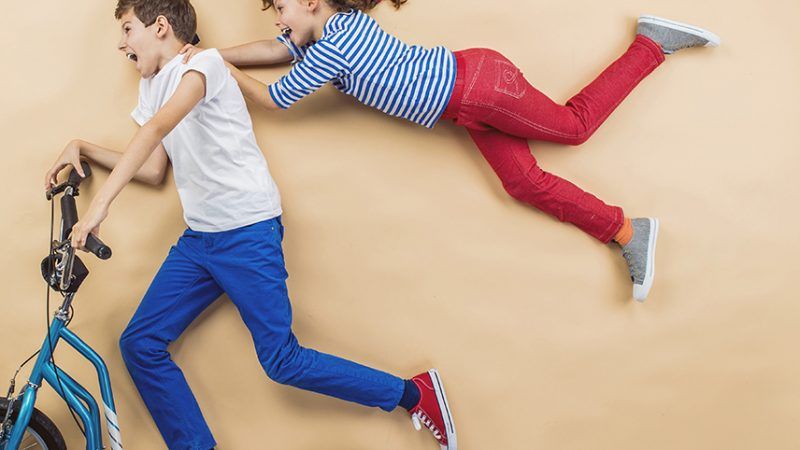When the Nanny State Actually Tries To Nanny
This is not just about kids, but about the adults they will become.


Anytime you hear the words "for the safety of our precious children," grab your little ones and run. Someone who thinks he cares more about your kids than you do is about to make you grovel. If he's from the government, run faster.
Chicago mom Kim Brooks learned that lesson a few years back when she was hurrying to get everything ready for a plane trip home from visiting her parents in Virginia. Brooks knew that if her son didn't have a set of headphones, it would be a miserable flight for him (and anyone seated near them, I would guess), so she drove to the store to buy a pair. When the boy said he didn't want to come in with her, she made the kind of split-second decision all parents will have to make a thousand times before their kids leave the nest: "What makes the most sense for my family, right here, right now?" She decided to let him wait in the car, playing on an iPad, with the windows cracked open on a mild day.
Unfortunately for Brooks, a bystander saw and videotaped her heinous five-minute crime. The cops were already calling her when she got back to Chicago, and she was charged with contributing to the delinquency of a minor.
Brooks relates this tale in Small Animals: Parenthood in the Age of Fear (Flatiron Books), the latest addition to a growing canon of work raising the alarm about how easy it is these days for parents to find themselves in serious trouble for having done something statistically safe but socially frowned upon. (Another great book in this genre, Greg Lukianoff and Jonathan Haidt's The Coddling of the American Mind, is excerpted starting on page 62 of this issue.) Usually that means they had the temerity to take their eyes off their kids for more than a few seconds.
I'm talking about moms like Danielle Meitiv, investigated for letting her children, 6 and 10, walk home from the park together. Or Debra Harrell, held in jail overnight for letting her 9-year-old play in a sprinkler while she worked her shift at a nearby McDonald's. Or Natasha Felix, placed on the child abuse registry (yes, there's one in every state) for letting her kids—11, 9, and 5 at the time—frolic at the playground across the street without her. All these and countless more examples show how we have criminalized parents who, by choice or necessity, give their kids some unsupervised time.
Brooks called me shortly after her arrest and asked if I wanted to hear what had just happened. "No," I interrupted, "let me tell you what just happened." And I rattled off a typical scenario remarkably similar to the one she was about to divulge.
Brooks, hardly a shrink-the-government conservative, was shocked to hear how commonplace such experiences are. She was appalled to discover the vast power the state holds over us, including the authority to take away our kids if we refuse to act like crazed helicopter parents. And she was mad that these laws turn even working moms into housewives who must be on constant chaperone duty.
You don't have to be a hardcore libertarian to share the intuition that it's bad news when government is telling you how to raise your children. This new normal doesn't just place an unfair and unreasonable burden on parents. With almost no opportunities to play, explore, goof up, get lost, solve problems, and/or resolve arguments on their own (because there's always an adult hovering!), children themselves end up socially and emotionally stunted.
We need to support parents, teachers, and kids who are willing to go a bit outside of their comfort zones. We'd all be better off if a little more childhood independence became acceptable, perhaps even respectable, again.
Because in the end, this is not just about kids, but about the adults they will become. Feisty kids grow up to be feisty adults—the kind who are willing to fight for their freedom, even in a world that tells them any liberty is worth sacrificing "for the safety of our precious children."
This article originally appeared in print under the headline "When the Nanny State Actually Tries To Nanny."


Show Comments (42)